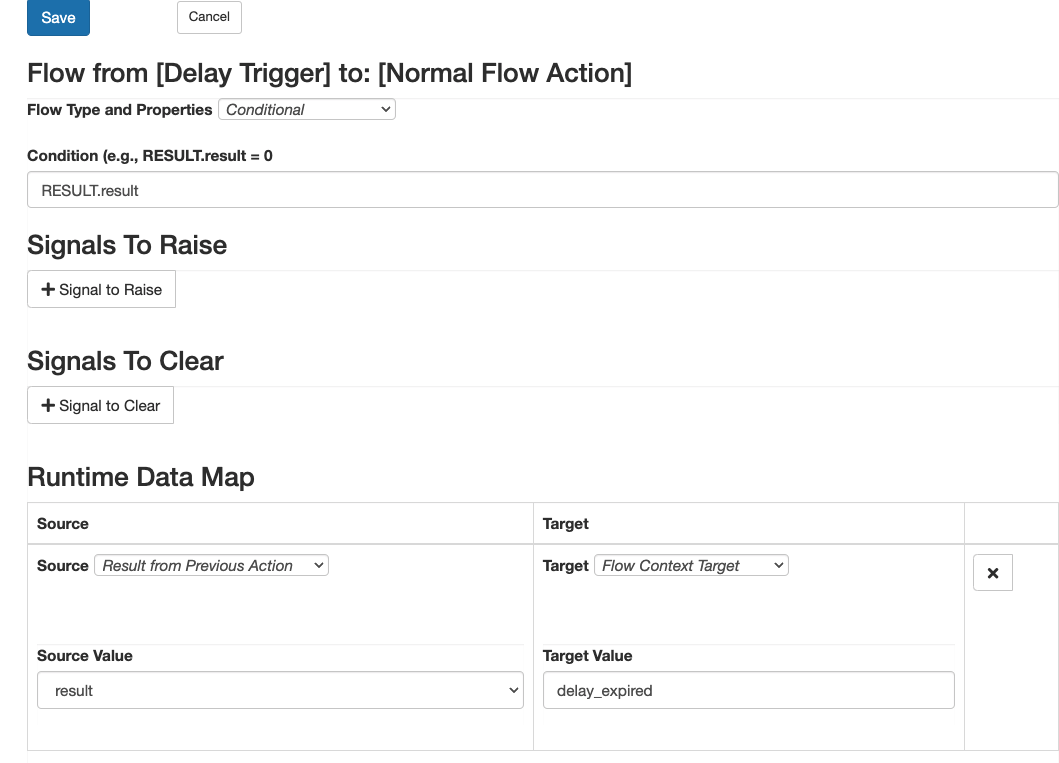Core Triggers and Actions - Delay Trigger
The Delay Trigger is needed when you want to wait for a certain amount of time, unlike a timer trigger, which fires on a set schedule. The Delay Trigger is particularly useful in default error handlers where you need to pause for a time before retrying a particular action.
The following attributes are available for configuration on a DelayTrigger:
- The count describes how many times the delay trigger will fire before it expires.
- The delay time expression specifies either the amount of time the delay trigger will wait.
- The expiration flow indicates the flow the timer trigger will take when it expires (the count reaches 0).
- The expiration time expression specifies the time that a delay trigger will expire.
Results
The Delay Trigger returns its result in the flow context variable “result”. The result contains a boolean indicating whether the trigger has expired. You can access the result from the following field:
| Flow Context Variable | Field | Java Type | Description | Prescript / Postscript Example |
|---|---|---|---|---|
| RESULT | result boolean | Indicates whether the delay trigger has expired. If true, the delay trigger fired normally; if false, the delay trigger has expired. | boolean expired = flowContext.get("RESULT").result; System.out.println("Expired? " + result); |
Passing Results with a Runtime Data Map
You can use a Runtime Data Map to copy the result field into a new variable (for future reference or to reuse the data later in the workflow).
To copy the result, you can use a data map like:
